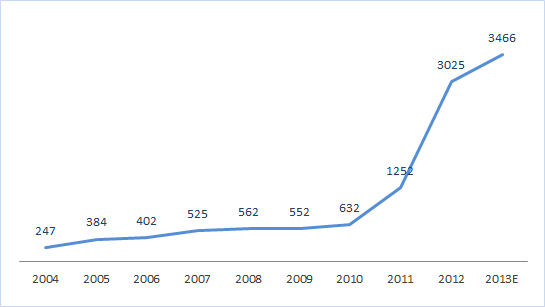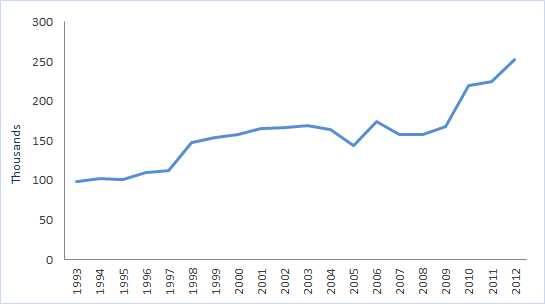In the United States are considering a new law against patent troll
 Over the past year, several laws have been proposed for consideration by the US Congress to solve the problem with patent trolls. The new bill “The Innovation Act of 2013” combines the ideas proposed earlier and has the highest chances of adoption.
Over the past year, several laws have been proposed for consideration by the US Congress to solve the problem with patent trolls. The new bill “The Innovation Act of 2013” combines the ideas proposed earlier and has the highest chances of adoption.Although the law cannot ban bad patents, it will at least stop the most egregious forms of trolling. This is clearly a step in the right direction. It is all the more important that many congressmen finally realized that there were serious problems in the patent system and the need for concrete action.
Patent trolls are engaged in buying up patents and are building a business on the aggressive use of intellectual property against unsuspecting companies and innovators. It uses highly dubious patents of extremely broad spectrum. For example, a patent for digital workflow with a proposal to issue a perpetual license at the rate of $ 1000 dollars for each scanner user.
Despite this, many companies agree to settle the case in the pretrial order due to too high legal costs and risks. Sometimes there are exceptions - some companies heroically fight the trolls in the courts and win the case, seeking victory. Victory is Pyrrhic, because the losing side does not pay the court costs of the winner (looking ahead: the new law just has to fix it).
')
Therefore, litigation is very risky and unprofitable. For example, Kaspersky Lab, after last year’s victory over the American patent troll, said that all other antivirus developers, more than 40 companies, decided not to get involved and signed up for the patent portfolio. The LC itself sued for 3.5 years and most likely paid dearly for its moral satisfaction.
The problem is really becoming more and more urgent. Enough to bring two graphics ).
The first shows the number of patent courts with non-practicing companies (trolls).

On the second - the number of patents for inventions issued in recent years (utility patents, patents for industrial designs and GMOs are not included here), in thousands.

So what does the new law do?
1. Detailed information . When submitting a claim to the court, it is imperative to provide information on which patents are specifically infringed and which products specifically are supposed to violate these patents and how. This rule makes it difficult for trolls to file lawsuits on a massive basis: a separate document must be drawn up for each defendant.
2. Translation of court fees . The court will receive the right to demand from the losing party to compensate for the legal costs incurred by the winner. This is a key moment, due to which the trolls are now successfully blackmailing the victims: they understand that even if they win in court, they will pay more than the troll demands.
3. Transparency . The law strictly requires the disclosure of the plaintiff, in whose interests he acts. Today, most trolls are one-day subsidiaries that are created for specific patents. If the company is a subsidiary, the defendant has the right to summon the parent company to the court to compensate the defendant for legal costs when the one-day company after defeat in court declares itself bankrupt and refuses compensation for costs.
4. Delayed cases against technology users . The law requires the court to suspend consideration of the case against companies-users of the serial product, if there is a lawsuit against the manufacturer of this product. For example, in 2011, hundreds of hotels, cafes and restaurants paid a patent troll to Innovatio IP Ventures, LLC from $ 2,300 to $ 5,000 for "using a WiFi router in a public place." This was one of the first cases when the trolls used the new tactic of submitting hundreds of small claims to technology users instead of a large lawsuit to the manufacturer (there they would have no chance, and here at least a hundred thousand would collect a penny).
5. Reform of mandatory disclosure of documents to the court . Under current law, the plaintiff has the right not to give patent numbers and not to give other information until the defendant agrees to participate in the process and does not pay the court fee and other costs (which many do not risk going). If patent information were to be opened from the very beginning, the ridiculousness of the trolls' claims might immediately become apparent.
6. Review after issue . The law extends the ability to challenge already granted patents in a US patent office.
The Electronic Frontier Foundation approved the bill and called it the best bill against the trolls out of all who had gone before. The Foundation calls on every US citizen to write a letter to his congressman demanding support for the Innovation Act of 2013.
Source: https://habr.com/ru/post/288402/
All Articles